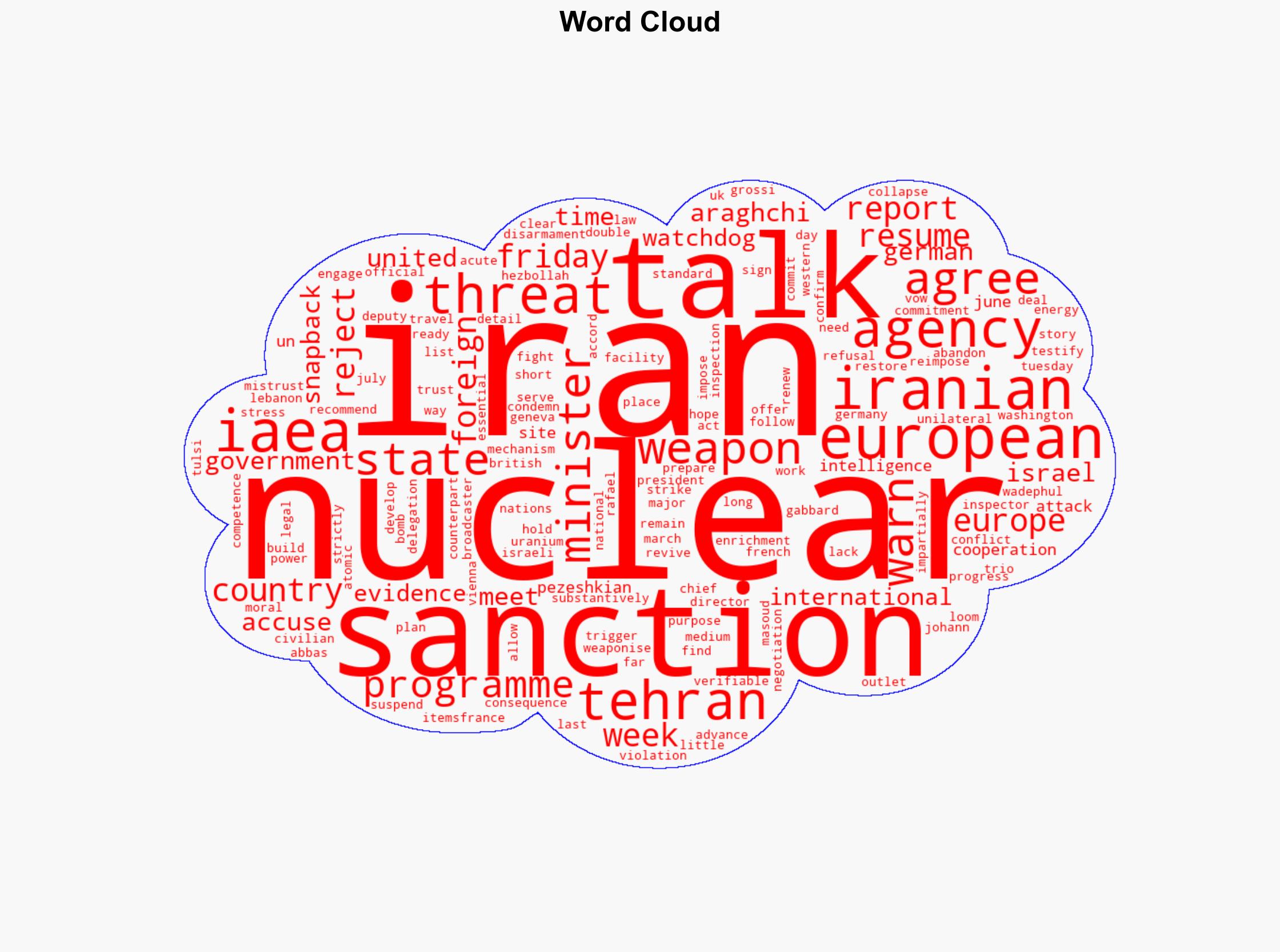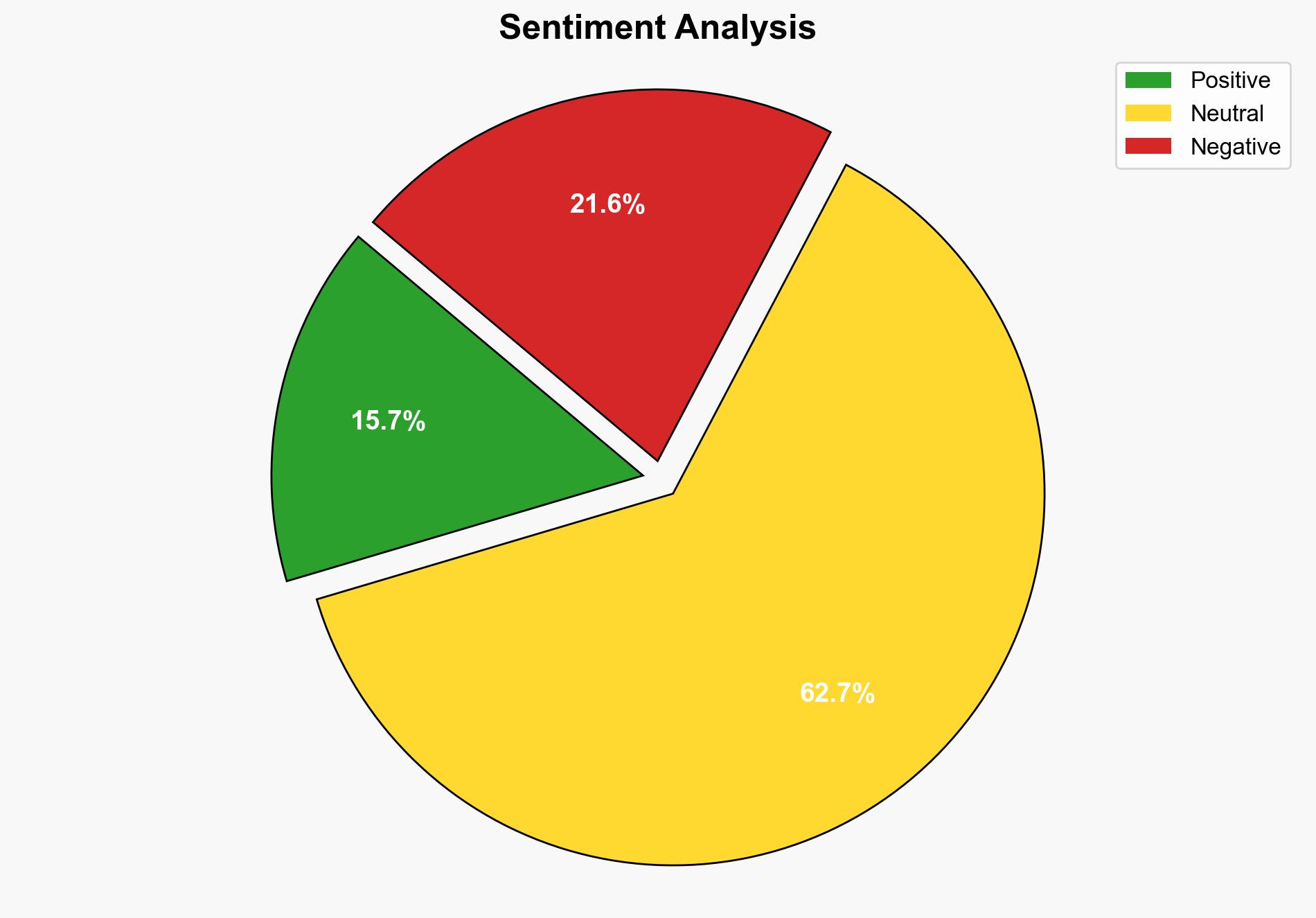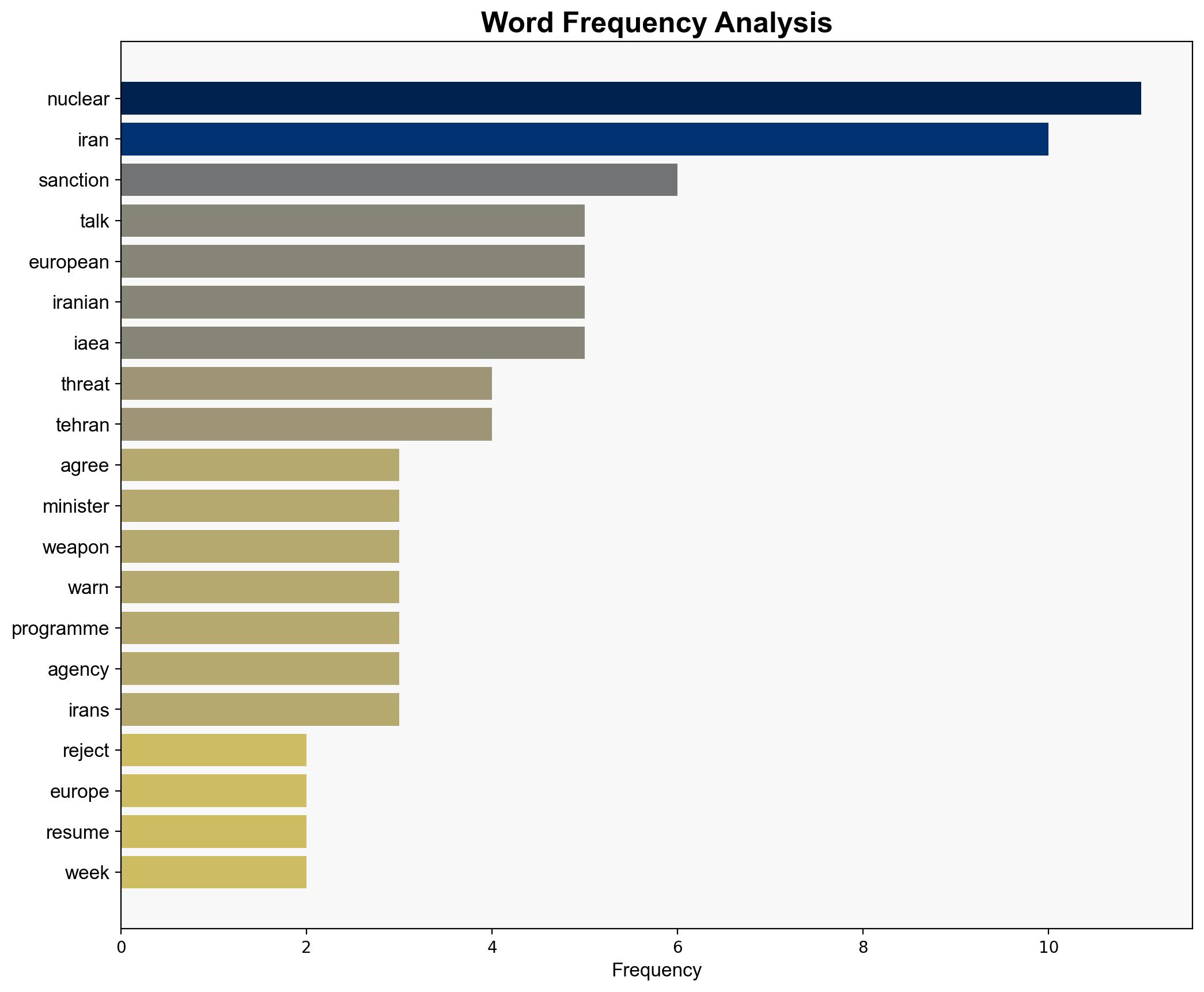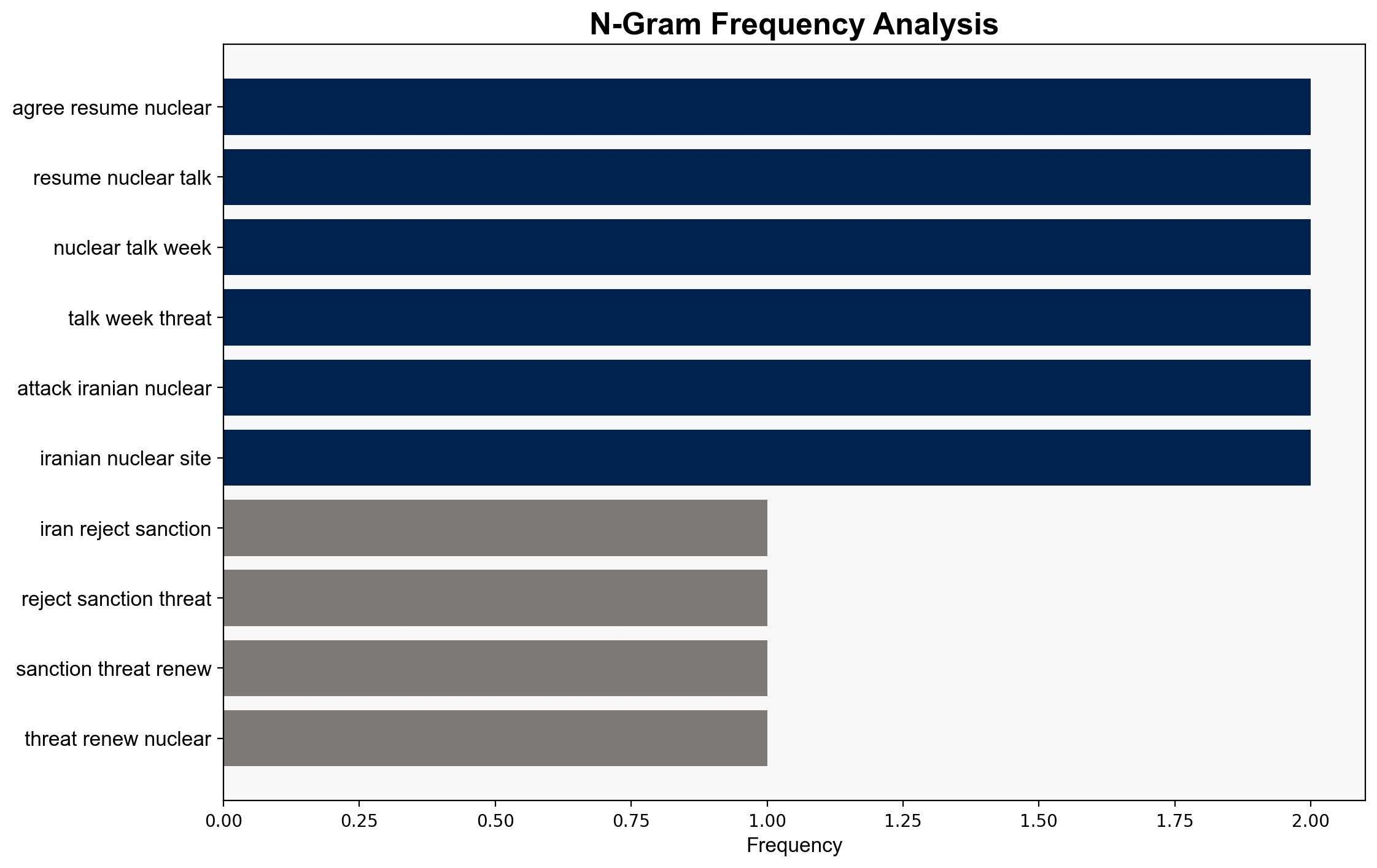Iran rejects sanctions threats before renewed nuclear talks with Europe – Al Jazeera English
Published on: 2025-08-22
Intelligence Report: Iran rejects sanctions threats before renewed nuclear talks with Europe – Al Jazeera English
1. BLUF (Bottom Line Up Front)
The most supported hypothesis is that Iran is leveraging its nuclear program as a strategic bargaining tool to gain concessions from European powers while avoiding new sanctions. Confidence level: Moderate. Recommended action: Engage in diplomatic efforts to ensure transparency in Iran’s nuclear activities and explore incentives for compliance, while preparing contingency plans for potential escalation.
2. Competing Hypotheses
1. **Hypothesis A**: Iran is using its nuclear program primarily as a bargaining tool to gain economic and political concessions from European powers, without intending to develop nuclear weapons.
– **Supporting Evidence**: Iran’s rejection of sanctions threats and willingness to resume talks suggest a strategic posture aimed at negotiation rather than confrontation.
– **Contradictory Evidence**: Continued uranium enrichment and past violations of international agreements could indicate a dual-use strategy.
2. **Hypothesis B**: Iran is genuinely advancing its nuclear capabilities with the intention of developing nuclear weapons, using negotiations as a stalling tactic.
– **Supporting Evidence**: Reports of uranium enrichment and accusations of violating international commitments align with weaponization efforts.
– **Contradictory Evidence**: Iran’s cooperation with the International Atomic Energy Agency (IAEA) and public statements about civilian purposes challenge this interpretation.
3. Key Assumptions and Red Flags
– **Assumptions**: Hypothesis A assumes Iran values economic relief over nuclear advancement. Hypothesis B assumes Iran prioritizes strategic military capability over diplomatic relations.
– **Red Flags**: Lack of transparency in Iran’s nuclear activities and inconsistent messaging from Iranian officials. Potential cognitive bias in interpreting Iran’s intentions based on historical distrust.
– **Missing Data**: Detailed intelligence on Iran’s internal decision-making processes and specific technical capabilities of its nuclear program.
4. Implications and Strategic Risks
– **Economic**: Renewed sanctions could exacerbate Iran’s economic challenges, potentially destabilizing the region.
– **Geopolitical**: Escalation could lead to increased tensions with Israel and the United States, impacting global security dynamics.
– **Psychological**: Mistrust between Iran and Western powers could hinder diplomatic efforts and lead to miscalculations.
5. Recommendations and Outlook
- Engage in multilateral diplomacy to ensure Iran’s compliance with nuclear agreements, potentially offering economic incentives for transparency.
- Prepare for potential escalation by strengthening regional alliances and enhancing intelligence capabilities.
- Scenario Projections:
- Best Case: Iran agrees to verifiable limits on its nuclear program, leading to eased sanctions and regional stability.
- Worst Case: Breakdown in talks results in military confrontation and regional instability.
- Most Likely: Protracted negotiations with intermittent progress and continued geopolitical tension.
6. Key Individuals and Entities
– Abbas Araghchi
– Johann Wadephul
– Tulsi Gabbard
– Masoud Pezeshkian
– Rafael Grossi
7. Thematic Tags
national security threats, nuclear proliferation, diplomatic negotiations, regional stability





